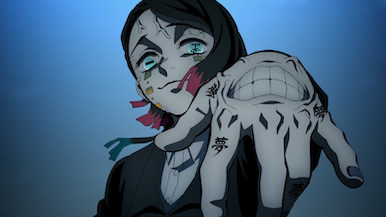|
|
Movie Review - Demon Slayer: Mugen TrainBy Jason LeeApril 29, 2021
Demon Slayer: Mugen Train isn't that type of movie. The film directly follows from the end of season one and adapts the “mugen train” arc from the manga. This means there’s not the typical setup/complications/climax/resolution combination one might expect. Rather, there’s the development of preexisting character evolutions and continuation of an overarching saga. The film thus lacks the type of emotional resolution that other films — including other movie franchises and interconnected cinematic worlds — usually provide. If you can get past and forgive this lack of narrative resolution, then by golly, you’re in for a fun ride. With one exception, the movie takes everything that’s awesome and brilliant about the television series and amps it up. The characters are at their most endearing and enjoyable. Tanjiro is as inspiring and passionate as ever, his sister, Nezuko, still provides amazing comic relief when things start to get a little dark, and Tanjiro’s two fellow demon slayers, Zenitsu and Inosuke, are welcome companions — far from the annoying characters they can sometimes be in the television series. The animation is also absolutely breathtaking, combining traditional Japanese anime style with computer animation to create some of the most dynamic, exciting, and beautiful action sequences I’ve ever seen. The screenplay and score are also excellent. Perhaps the only letdown is in the movie’s villain. Anime villains are usually defined by the past pain or tragedy that resulted in them becoming a villain, and their powers often (but not always) reflect that pain or tragedy in some way. The Demon Slayer television series does this as well as any anime, imbuing its villains with amazing backstories and fleshing out their past traumas. The movie is less successful on this front, but compensates for it by creating jaw-dropping battle scenes that carry real emotional resonance. All in all, there’s a ton to recommend about Demon Slayer: Mugen Train, and if you’re able to grab a ticket to see this film on the big screen, all the better — the animation sequences alone are worth the price of admission. So find a friend and do an impression of yourself back in 2019 by heading out to your local theater and checking out this amazing movie. And if you have time, make sure you watch season one before you do so.
|

|
|
|

|
Thursday, October 31, 2024
© 2024 Box Office Prophets, a division of One Of Us, Inc.


